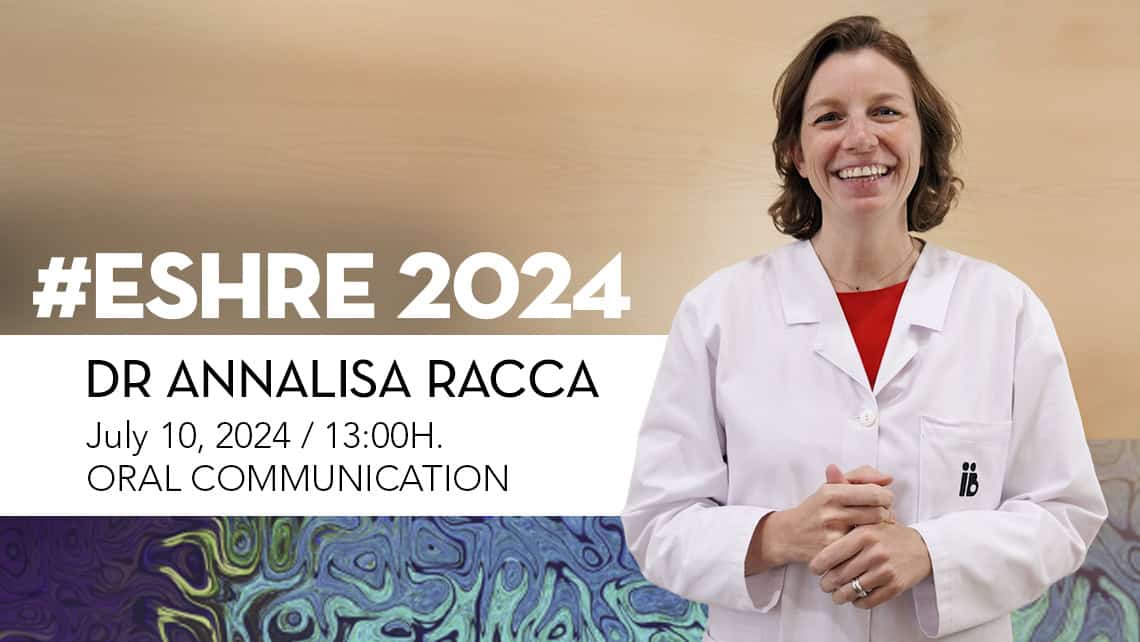Dr Racca will present a study on the perfect FSH dose during in vitro fertilisation at the ESHRE congress.
10-07-2024

- Results suggest that using a lower dose of FSH during ovarian stimulation in IVF could improve success rates.
- The ESHRE has selected this study as an oral presentation at the congress to be held on 7 to 10 July.
The European Society of Human Reproduction and Embryology (ESHRE) has selected a study led by Dr Annalisa Racca, medical coordinator of Instituto Bernabeu in Venice, which analyses the FSH dose that should be used in in vitro fertilisation (IVF) processes, as an oral presentation for the congress to be held from 7 to 10 July.
FSH (follicle stimulating hormone) is used during ovarian stimulation in IVF, a key factor for oocyte development that can also induce a rise in serum progesterone levels, a situation associated with low pregnancy rates.
“IVF has helped thousands of couples achieve their dream of having children, but there is still room to improve success rates, and personalised medicine is the way forward,” says Dr Racca. “Our study aims to optimise the dose of FSH for each patient, personalising treatment and maximising the chances of success,” she adds.
The study, a multicentre randomised controlled trial, included women undergoing IVF and divided them into three groups. Each group received a different ovarian stimulation protocol with different doses of FSH. The researchers measured progesterone levels, the number of eggs retrieved, pregnancy rates and the need for embryo freezing.
The results showed that women in the lower FSH dose group had lower average progesterone levels at the time of ovulation compared to the groups receiving higher FSH doses. The number of eggs retrieved was similar in all groups.
“These results suggest that using a lower dose of FSH during the final phase of ovarian stimulation in IVF could help control progesterone levels, which could lead to a higher number of fresh embryo transfers and higher pregnancy rates,” the doctor explained, who is confident that “these findings are very promising and could have a significant impact on the field of assisted reproduction”.
